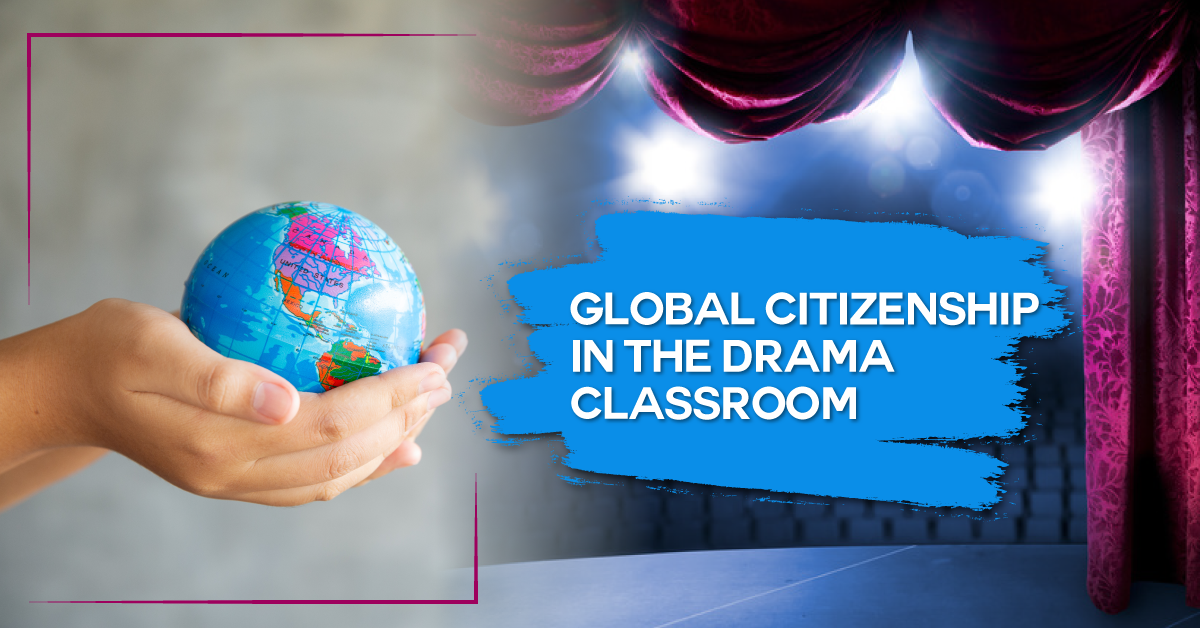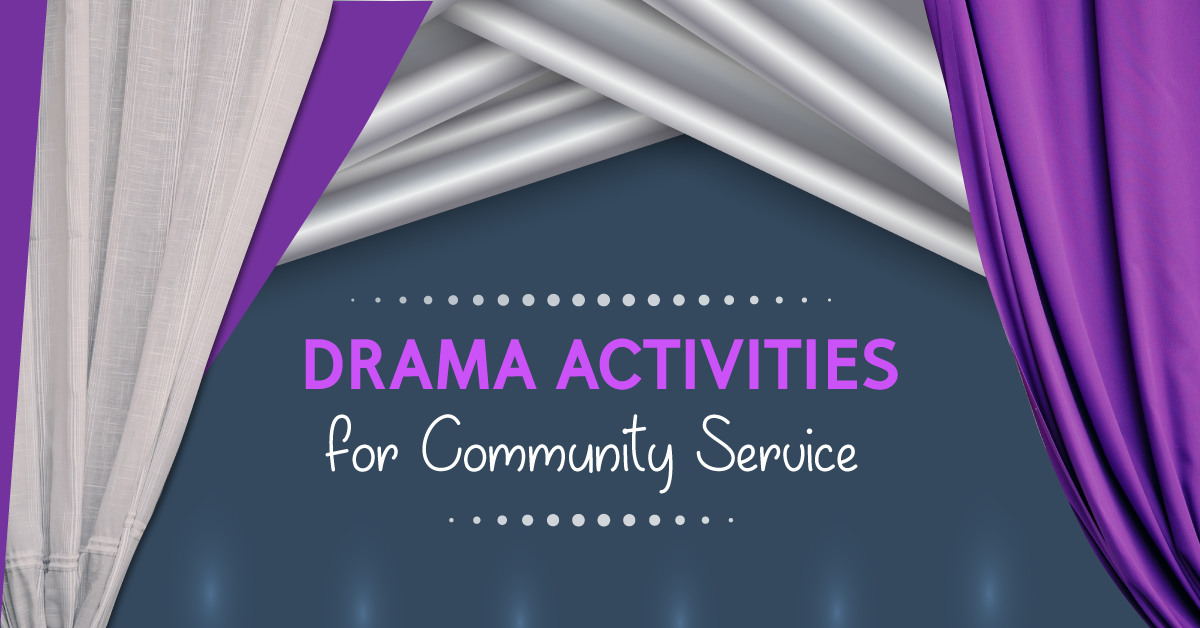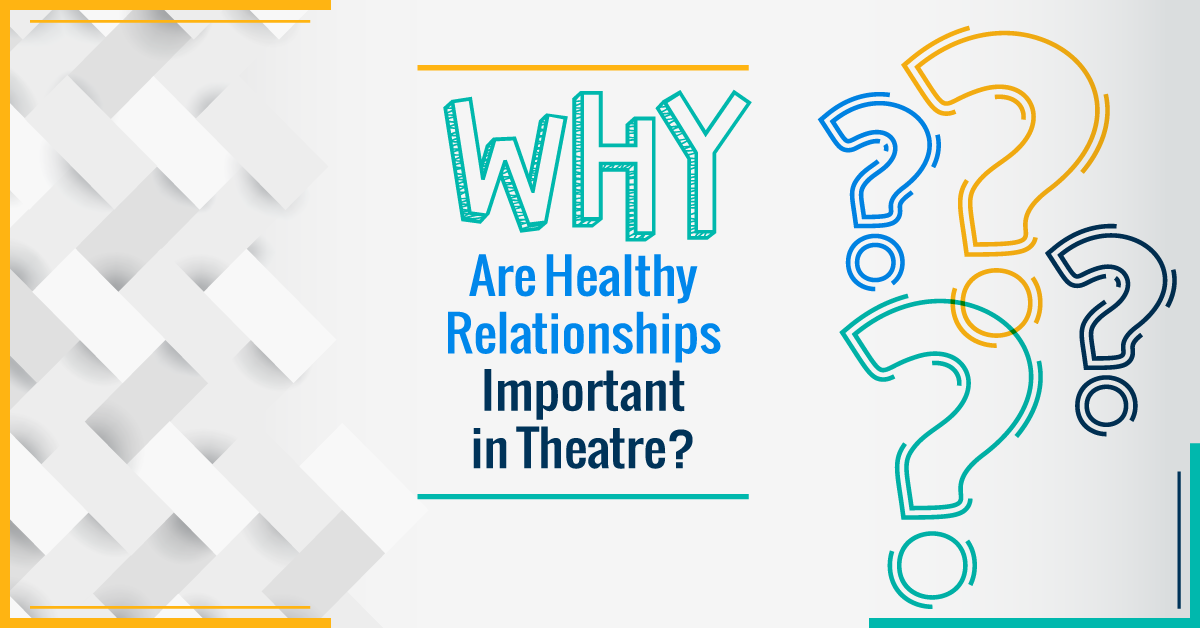Global Citizenship in the Drama Classroom
Global citizenship focuses on the idea that all people have rights and responsibilities that exceed their identity as a citizen of a particular country or place; rather, the focus is on the world as a whole and our place within it. Global citizens are active in their community (the phrase “think globally, act locally” applies here) and work towards making the world more equal, fair, and sustainable. Global citizenship celebrates our diverse and different cultures but also encourages students to take ownership of their voices and use them to make positive changes for the future.
The drama classroom is a wonderful place to encourage students to investigate global citizenship, as the theatre already serves as a place to unite students of all different backgrounds, experience levels, and abilities with a common goal – to express themselves through creative storytelling. This lends itself well to exploring global citizenship, as the theatre has historically been used to bring attention to global and local issues. As well, the drama classroom is a safe place to learn about and celebrate various styles of theatre from different nations and cultures. Performance has often been used as a way for people to share their thoughts and opinions, raise awareness, and even provoke change.
The high school drama classroom is an even more appropriate place to study global citizenship, as high school students are at an age where they are becoming more aware of world issues, beginning to form opinions on various topics, and starting to advocate for the ideas they believe in. The drama classroom, being a safe place for students to express themselves, is a great environment for students to investigate the issues and problems that are important to them, and to figure out where they belong within the global perspective.
As an introduction to get students to begin thinking about global citizenship, start by brainstorming various issues that students may have heard about in the news recently, or that are of particular importance to them. These could include issues such as environmental and climate change concerns, gender inequality, racism, homophobia (and other LGBTQ+ issues), the political climate (including new laws that are being considered and changed), Indigenous issues, mental health, and so on.
From there, have students think about news articles, movies, television shows, books, songs, plays/musicals, and other forms of media that have depicted these issues in some way. For example, the musical Hairspray deals with segregation in the 1960s, and the current Broadway musical The Prom focuses on a young woman who wants to bring her girlfriend to her senior prom. How are these issues being depicted? Are the messages positive or negative? Why did they make students feel that way? Did the media’s portrayal of the issues make them want to learn more or take action? Why or why not?
Finally, have students brainstorm ways in which a drama student could use theatrical methods to express their thoughts and feelings about one of these issues. For example, students could write a monologue from the perspective of someone experiencing discrimination, create a song or spoken word poetry piece as part of a fundraising effort, or use a particular issue as a jumping-off point for devising a brand-new piece of theatre – think about shows like The Laramie Project and My Name is Rachel Corrie for inspiration. Theatrefolk also has a ton of issue-based plays available – click here to check them out.
If this all seems overwhelming, please don’t stress. You aren’t starting a revolution – you’re starting small. Remind yourself that even though you are introducing global citizenship within the drama classroom, it is not up to you to have all the answers. Rather, you are helping students to explore their thoughts and feelings about issues that potentially affect them, and giving them the opportunity, space, and resources to express these thoughts. Starting on a personal level with issues important to your students helps them start forming opinions and collecting ideas. From there, students can start to explore how their ideas and opinions relate to others on a larger scale.



